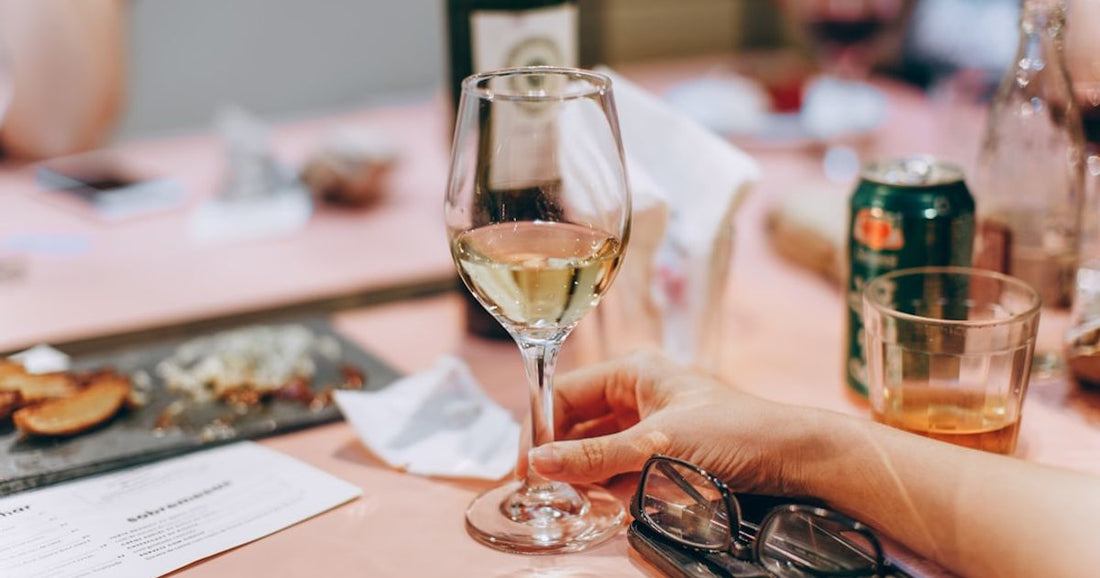
The Role of Technology in Spanish Winemaking
Share
In the storied landscapes of Spanish winemaking, where tradition meets innovation, the role of technology has become increasingly pivotal. As one of the world's oldest and most diverse wine-producing countries, Spain has always been revered for its rich winemaking heritage. However, in recent years, an exciting transformation has been underway. Modern technology is reshaping the Spanish winemaking industry, from the sun-drenched vineyards to the ancient cellars where wines age gracefully. This article delves into how cutting-edge technologies like drones, artificial intelligence (AI), and smart sensors are revolutionizing the processes behind your favorite Spanish wines, ensuring quality, sustainability, and efficiency like never before.
Key Takeaways
Before we dive into the intricate ways technology is influencing Spanish winemaking, here are some key points to remember:
- Precision Agriculture: Technologies such as drones and smart sensors are enabling vineyard managers to monitor and optimize vine health and soil conditions with unprecedented accuracy.
- Artificial Intelligence and Data Analysis: AI is transforming winemaking by predicting optimal harvest times, enhancing blending processes, and even forecasting wine trends.
- Sustainability: Technological advancements are at the forefront of promoting sustainable winemaking practices, reducing water usage, and minimizing the carbon footprint of vineyards.
- Quality Control: From the vineyard to the bottle, technology ensures the highest quality of wine through meticulous monitoring and control processes.
The Revolution in the Vineyards
Drones and Smart Sensors: Precision Agriculture
The advent of drones and smart sensors has ushered in a new era of precision agriculture in Spanish vineyards. Drones, equipped with advanced imaging technologies, fly over vineyards capturing detailed data on vine health, soil moisture levels, and even signs of pest infestation. This aerial perspective allows vineyard managers to make informed decisions on irrigation, fertilization, and pest control, targeting specific areas that need attention rather than applying a one-size-fits-all approach.
Smart sensors placed throughout the vineyards provide real-time data on soil conditions, humidity, and temperature. This constant stream of information enables vintners to optimize growing conditions, ensuring that each vine grows under the best possible circumstances. The result is not only an increase in the quantity and quality of the yield but also a significant reduction in water usage and chemical inputs, aligning with sustainable winemaking practices.
Artificial Intelligence: Predicting and Enhancing Quality
Artificial intelligence is playing a transformative role in how winemakers predict and enhance the quality of their wines. Machine learning algorithms analyze vast amounts of data collected from the vineyards and winemaking processes, identifying patterns and insights that would be impossible for humans to discern. For example, AI can predict the optimal time for harvest with a high degree of accuracy, ensuring grapes are picked at their peak ripeness.
Beyond the vineyard, AI is also being used in the blending process. By analyzing historical data and current wine characteristics, AI can suggest the ideal blend ratios to achieve the desired flavor profiles. This not only helps in maintaining consistency across vintages but also allows winemakers to experiment with new and complex blends, pushing the boundaries of traditional winemaking.
Enhancing the Winemaking Process
Smart Fermentation Tanks
The fermentation process is critical in winemaking, where the sugar in grapes is converted into alcohol. Today, smart fermentation tanks equipped with sensors are used to closely monitor and control this process. These sensors track temperature, sugar levels, and yeast activity, allowing winemakers to make adjustments in real-time. This precise control over fermentation not only ensures consistency but also allows for the creation of more complex and nuanced flavors in the wine.
Robotic Assistance and Automated Bottling
Robotic assistance in wineries is becoming more common, handling tasks ranging from grape sorting to barrel aging. These robots can sort grapes more quickly and accurately than humans, ensuring only the best grapes make it into the wine. Automated bottling lines, on the other hand, ensure that the wine is bottled under optimal conditions, preserving its quality and extending its shelf life. These technological advancements streamline winemaking operations, reduce labor costs, and minimize the risk of human error.
Sustainability Through Technology
Sustainability is a growing concern in the wine industry, and Spanish winemakers are leveraging technology to address these challenges. Water scarcity, a pressing issue in many wine-producing regions, is being tackled with the help of smart irrigation systems. These systems use data from soil moisture sensors to provide precise watering, reducing water usage significantly.
Renewable energy sources, such as solar panels, are increasingly being installed in vineyards and wineries, reducing their carbon footprint. Additionally, technology is enabling winemakers to track and reduce their energy consumption throughout the winemaking process, from vineyard management to packaging and distribution.
The Future of Spanish Winemaking
The integration of technology into Spanish winemaking is not just about enhancing efficiency and sustainability; it's also about preserving tradition. By combining centuries-old winemaking techniques with modern innovations, Spanish wineries are ensuring that their cherished wine heritage continues to thrive in the face of global challenges.
As technology continues to evolve, we can expect even more exciting developments in the world of wine. From blockchain for wine traceability to virtual reality experiences that bring consumers closer to the vineyards, the possibilities are endless. The future of Spanish winemaking is bright, with technology playing a central role in its evolution.
In conclusion, technology is reshaping the Spanish winemaking landscape in profound ways. From precision agriculture to smart fermentation tanks, the integration of modern tech is ensuring that Spanish wines continue to delight the palates of wine lovers around the world while adhering to sustainable practices. As we look to the future, it's clear that technology will continue to be a vital ally in preserving and enhancing the rich winemaking heritage of Spain.
For those interested in further exploring the nuances of Spanish wine, consider reading about the role of monasteries in Iberian winemaking, different aging techniques in Spanish wineries, or the impact of climate change on contemporary Spanish wine. Each article provides a unique perspective on the traditions and challenges that shape the world of Spanish wine.


